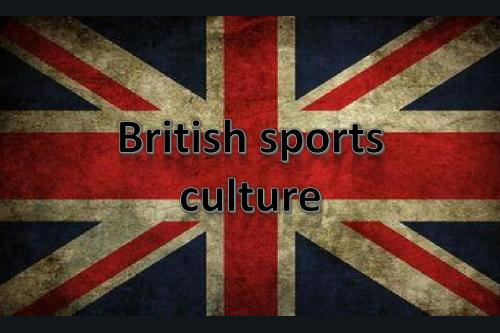Britain’s Olympic Athletes: What Price Victory?
英国奥运健将:胜利的代价有多大?
Big money and ideas from musicians, soldiers and private-equity gurus are behind major medal hauls
奖牌丰收背后的大笔金钱以及来自于音乐家、军人和私募高手的思想
It seems hardly an auspicious time to release a book on Britain’s Olympic success. Numerous scandals – accusations of bullying, sexism and failure to keep proper records of drugs – are engulfing British Cycling, a symbol of national glory. Yet the transformation of Britain’s performance in the Olympics remains a remarkable tale. In 1996, Britain’s “team of shame” came 36th in the medal table, below Algeria, Ireland and North Korea. At the London games of 2012, Team GB (as the United Kingdom’s squad is officially known) won 65 medals, up from 15 in 1996. Britain performed even better in Rio last year, winning 27 golds and 67 medals in all, finishing second, above China, in the overall medal table, defying the trend of host nations’ sliding down the tables in the following games.
要出一本书讲述英国在奥林匹克上的成就,现在似乎不是个好时候。许多丑闻——关于霸凌、性别歧视和未能妥善记录药品的指控——正在吞噬着自行车运动这个英国国家荣耀的象征。不过,英国在奥运会上表现的转变依然是一个传奇故事。1996年,英国的“耻辱之队”在奖牌榜上排名第36,排在阿尔及利亚、爱尔兰和朝鲜之后。在2012年伦敦奥运会上,大不列颠队(英国国家队的官方名称)赢得了65枚奖牌,而1996年时只有15枚。英国在去年的里约奥运会上表现更进一步,赢得了27枚金牌和67枚奖牌,在总奖牌榜上超越中国位居第二,打破了东道国在后续奥运会中成绩下滑的惯有趋势。
These hauls have been a triumph for detailed and ambitious planning, as Owen Slot, a sports writer for the Times, explains in an engaging book. Huge spikes in cash have helped. Across Olympic and Paralympic sports, UK Sport, Britain’s funding body, spent £69m ($89m) on Sydney 2000 but almost £350m on Rio 2016. Yet cash alone cannot explain all of Team GB’s success: for the 2012 games, South Korea and Japan spent over three times more than Britain and had worse returns.
这些收获是详尽而宏伟的规划的胜利,《泰晤士报》的体育作家欧文·斯洛特(Owen Slot)在一本引人入胜的书中这样解释道。猛增的现金投入收到了效果。在奥运会和残奥会上,英国的筹资机构英国体育(UK Sport)在2000年悉尼奥运会上花费了6900万英镑(合8900万美元),而在2016年里约奥运会上则花费了将近3.5亿英镑。然而,单从资金来看并不能解释英国队的全部成功:在2012年奥运会上,韩国和日本的花销是英国的三倍多,回报却较差。

UK Sport adopts the mindset of an investor seeking the best returns wherever they can be found. The model has been unashamedly ruthless, concentrating on disciplines with the best medal prospects while ditching also-rans. Even among the sports that do receive funding, cash is diverted to a tiny coterie of elite athletes: the £21m allocated to swimming before Rio was focused on nine “Golden Children”. Before Rio 2016, Liam Tancock, Britain’s best male swimmer of recent times, lost his funding largely because he would turn 31 before the games – past his prime.
英国体育持投资者的心态,并坚持不懈地寻求最佳回报。这个模式出奇地冷酷,专注于夺牌希望最大的项目,而把陪跑者弃置一旁。即使在获得资助的项目上,资金也集中在寥寥几位精英运动员身上:里约奥运会前,划拨给游泳项目的2100万英镑集中在九位“金童”身上。在2016年里约比赛前,英国近年来最好的男子游泳运动员利亚姆·坦考克(Liam Tancock)失去了资助,主要是因为他在赛前已满31岁——巅峰期过去了。
Mr. Slot’s attention to detail turns up some fascinating facts. East German-style national talent-scouting programmes were created, producing Olympic medallists from those who had never previously played the sport – in the process debunking a widespread notion that 10,000 hours are needed to achieve excellence in a skill. Coaches were hooked up to heart-rate-variance monitors, to understand how to manage their stress levels better, and Team GB’s managers analysed the optimal way to coach athletes of different sexes. Teams engaged parents about the best techniques for nurturing high-performance athletes. The British Olympic Association made its first reconnaissance mission to Brazil, to find ideal hotels and training facilities, six years before Rio 2016.
斯洛特对细节的关注引出了一些迷人的事实。英国设立了东德式的全国人才探寻计划,从以前从未参加过某项运动的人中制造出了奥运奖牌获得者——在这个过程中破除了需要一万小时才能在某项技能上实现卓越的流行观念。教练挂了上心率波动监测仪,以了解如何更好地管理自己的压力水平,而英国队的经理则分析了训练不同性别的运动员的最佳方式。运动队联系家长,介绍培养杰出运动员的最佳技术。早在2016年里约奥运会举办的6年前,英国奥委会就前往巴西执行了第一次侦察任务,寻找理想的酒店和训练场所。
UK Sport has borrowed from a wide array of fields in pursuit of an edge. Music schools and military special forces were asked for advice on spotting talent and performing under pressure, and an expert in turning around flagging businesses, borrowed from a private-equity firm, helped improve British shooting’s meagre performance. Mr. Slot’s book is written in conjunction with Simon Timson and Chelsea Warr, two of Team GB’s directors of performance, who contribute a brief summary of lessons after each chapter. Their input is double-edged: it ensures that the book provides an unrivalled look inside UK Sport’s medal-factory, but may also keep Mr. Slot from tackling some subjects with complete independence.
英国体育从许多领域借鉴经验以获得优势。他们向音乐学校和军事特种部队咨询如何发现人才和抗压,从一家私募股权公司延请擅长为衰败企业扭转局面的专家,帮助改善了英国射击队的糟糕表现。斯洛特的这本书是和英国国家队的两位业绩总监西蒙·蒂姆森(Simon Timson)和切尔西·沃尔(Chelsea Warr)合作完成,这两人贡献了每章末尾简短的经验小结。他们的参与是一把双刃剑:确保了这本书无与伦比地展现了英国体育奖牌工厂的内幕,但同时可能也使得斯洛特无法完全独立地处理某些话题。
The increased investment in the Olympics and the subsequent bonanza of medals, may have given Britain a reason to hold its head high. But success for the elite has come at a time of falling sports participation in Britain, with the decline greatest among the poor. For all the successes, the question lurking beneath this book is an uncomfortable one. In an era of austerity and impoverished grassroots sport, has the price of these medals been too great?
对奥运会投资的增加以及随之而来的奖牌潮可能让英国有了昂首挺胸的理由。然而,精英的成功恰逢英国体育参与率下降的时代,而穷人的参与率下降最大。尽管讲述了种种成功,这本书背后隐藏的问题却让人感到不适:在财政紧缩而草根体育贫瘠的年代,这些奖牌的价格是否过高?
下载:英文、中文版本








